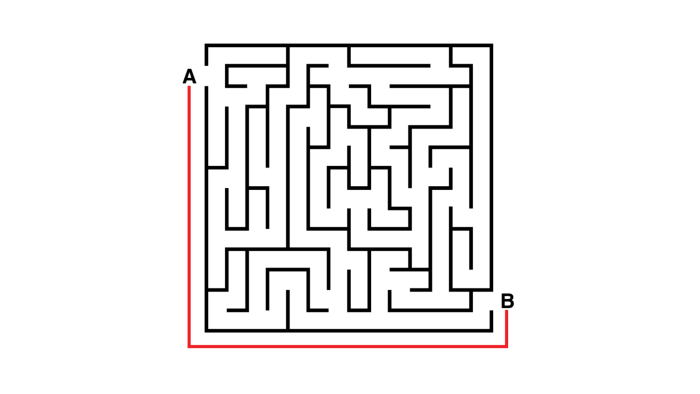Imagine that a certain person — let’s call them Robin — is walking across a college campus when they pass a doorway and notice a man slumped on the ground. The man coughs and moans as Robin passes.
Will Robin stop and help? To answer the question, we might want to know more about Robin. What is Robin’s personality? Is Robin a member of a religious group, or perhaps a volunteer at a charity? Does Robin have a track record of altruistic behaviour? We might speculate that Robin might be more likely to stop if she is female, and thus stereotyped as caring and empathetic. Or perhaps a male Robin would be more likely to stop, less nervous about his personal safety.
In their classic psychology textbook, The Person and the Situation, Lee Ross and Richard Nisbett declare that such questions are overrated. Instead of asking about Robin the person, we should ask about the situation. Did the man in the doorway look ill, or drunk? Was he smartly attired or dressed in dirty rags? Or perhaps a more trivial-seeming question: was Robin in a hurry?
In short, argue Ross and Nisbett, our personalities are less important as a prediction of our behaviour than we might think, and a powerful influence on what we do, often overlooked, is the situation.
In the early 1970s, the psychologists John Darley and Daniel Batson staged Robin’s situation 47 times, for 47 unsuspecting (male) theology students at Princeton. Each was recruited to give an impromptu talk, and told that it would be filmed in a building nearby. On the walk to the filming location, he would encounter an actor, slumped in a doorway, pretending to cough and moan. Who stopped?
No personality trait measured by Darley and Batson had any power to predict the answer to that question. Some students were asked to give their talk about career options for seminary students, and others to talk about the parable of the Good Samaritan. (Who said academic researchers don’t have a sense of humour?) The choice of topic made little difference.
The one variable that had a huge influence on whether the student stopped? Whether they were in a rush. Some students were told they were running late, while others were reassured they were ahead of schedule. Only 10 per cent of those in a hurry stopped to help. Sixty-three per cent of those with ample time diverted to see if the man in the doorway needed assistance.
The situation matters, then — something to bear in mind before leaping to judge others, and a lesson that has been taken to heart by policy wonks in “nudge units” around the world.
But perhaps it is also something to bear in mind as you contemplate the wreckage of your new year’s resolutions. Every year, many of us resolve to change our ways. And every year, many of us fail. One reason may be that we keep imagining changing ourselves as a person, rather than changing our situation. We tell ourselves to eat better food, drink less and exercise more. But perhaps we would do better if we told ourselves to sign up for a weekly vegetable-box delivery, and join a running club that meets on Friday evenings instead of going to the pub.
Ross and Nisbett give the example of someone changing their situation to become more intellectual. “By the academic and occupational choices they make, by the people with whom they pursue friendships, by the reading material they purchase (and maybe even by the decision they make to disconnect the television set because it is too tempting a situational influence to overcome), intellectuals effectively create their own environments.”
Whether your goal is to become an “intellectual” or something else, the point stands. If we want to act differently, we should surround ourselves with things and people who are likely to encourage us.
As for disconnecting the TV (adorable!), this is a simple example of a commitment strategy. If you’d like to drink less, don’t keep booze in the house. If you don’t want to be distracted by your phone, delete the most troublesome apps and switch it off when you’re trying to concentrate, or to sleep.
One puzzle is why we don’t use such commitment strategies more often. The answer, in part, must be our endless capacity to surprise ourselves with our own fallibility. This time, we tell ourselves, it will be different. It won’t.
But perhaps there is also a stigma to using these commitment hacks, such as the app that blocks your screen time, or even a commitment service such as Stickk, which will take a cash sum from you and promises only to return it if you stick to your own pledge.
Researchers Ariella Kristal and Julian Zlatev have investigated reactions to commitment strategies, and found that we distrust people who use them instead of willpower. Apparently, downloading an app feels like cheating (let’s not even talk about weight-loss drugs). The truly virtuous choice, we assume, is to grit your teeth and rely on pure determination.
I’m not so sure. There’s not much virtue in a failed attempt at willpower, and there is much to admire in someone who recognises their own weaknesses and acts to forestall them. So delete those social media apps, place a regular order for those vegetables and, above all, find yourself a new year’s exercise buddy.
Find out about our latest stories first — follow FT Weekend Magazine on X and FT Weekend on Instagram
Read the full article here

